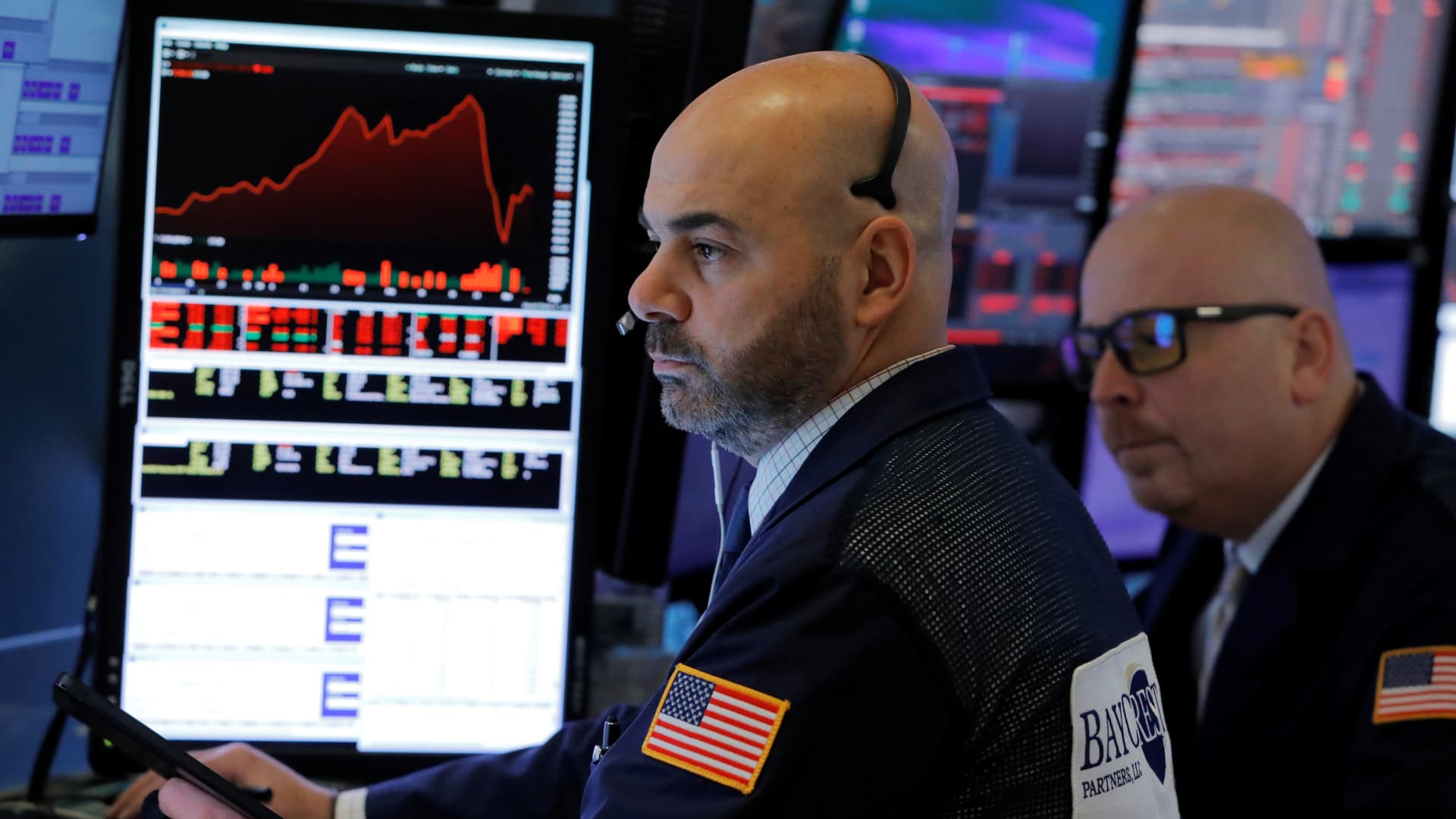
It’s a tough year to be in the stock market, given the seemingly never-ending cycle of gyrations. Inflationary pressures remain elevated and with the Federal Reserve poised to pursue a more aggressive rate hike policy , a recession could be on cards. So how should investors trade this volatility? Fund manager Freddie Lait, a long-term investor, tells CNBC how he’s navigating the challenging landscape. 1. Diversify your portfolio “The overriding strategy that we have always had is to genuinely diversify our portfolio,” Lait, founder and CEO at Latitude Investment Management, told CNBC “Squawk Box Europe” on Monday. “One of the easiest and best ways to be a genuinely long-term investor is to not overly concentrate your investments in one style or theme or sector.” The top 10 holdings of Lait’s Latitude Global Fund held reflect this strategy. The stocks — discount chain Dollar Tree , aftermarket parts retailer AutoZone , Dutch brewer Heineken , Danish pharmaceutical firm Novo Nordisk , semiconductor firm Texas Instruments , liquor producer Diageo , BP , Equinor , Coca-Cola and Alphabet — span diverse sectors, including energy, technology, healthcare, consumer cyclicals and more. The fund’s net performance over the year to the end of May was +0.6%, well outperforming the MSCI World index , which fell 12.97% over the same period. 2. Buy stocks with pricing power “What’s common to all the stocks and all the businesses in which we invest in — and it’s not just because of the current environment we find ourselves in — is the ability to pass on input cost inflation,” Lait said. He noted that companies which have bargaining power with their suppliers and customers tend to be less fragile as they move through cycles. Pricing power refers to a company’s ability to raise prices without losing business. Companies with pricing power tend to weather inflationary periods better than competitors because they can pass on higher costs. “It’s playing out very well at the moment because a lot of the businesses in which we invest have that embedded ability to protect against inflation. Some even benefit from it, like energy companies,” Lait added. Read more These global stocks look oversold — and analysts are expecting a rebound Beware these yield traps with dividend payouts that could be too good to be true These bank stocks did well during the 1994 Fed rate hikes — and could be about to do so again 3. Buy ‘anti-fragility’ stocks Lait noted that the world is undergoing a steady unwinding of a very “optimized globalization, just-in-time inventory, relatively easy politics and incredibly easy monetary policy.” This has led to more economic cycles around the world, which Lait said is leading to “fragile stocks” feeling the pinch. “You always want to invest in those businesses that are anti-fragile, that have that ability to navigate through whatever periods of time they find themselves in. We believe to own as broad an array of such businesses as you can to diversify against whichever cycle is going to work at different points in time,” he added. 4. Back great management teams Lait believes there will be a lot of corporate decision making over the next couple of quarters, as companies navigate the challenging landscape. “A lot of businesses could say, well, we could raise prices in the last six or eight weeks to smooth out the cost inflation we’re seeing, or we could keep our prices low to grow market share and try and build for the future. There’s going to be a lot of [those] puts and takes.” With market volatility expected to carry on for “the next few years,” investors will have to decipher a management team’s ability to make those decisions, Lait said. “You really have to back great management teams,” he stressed. “I think if you get a profit warning that’s little bit left-field and a business you weren’t sure about was in fact a bit overvalued and [you do] not have that much faith in the management team, I think you’re going to really struggle to hold on because other people are going to be selling those businesses off quite hard.
